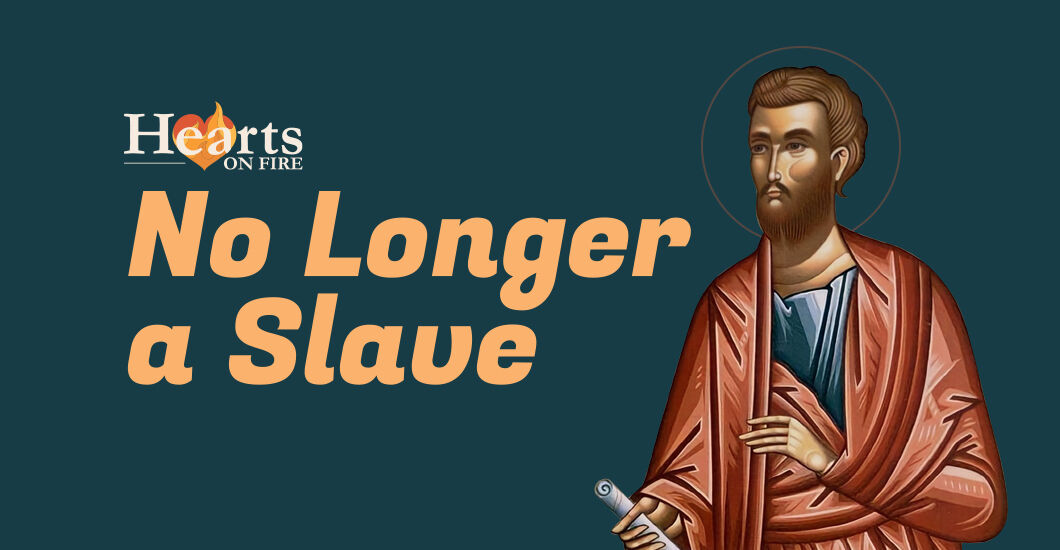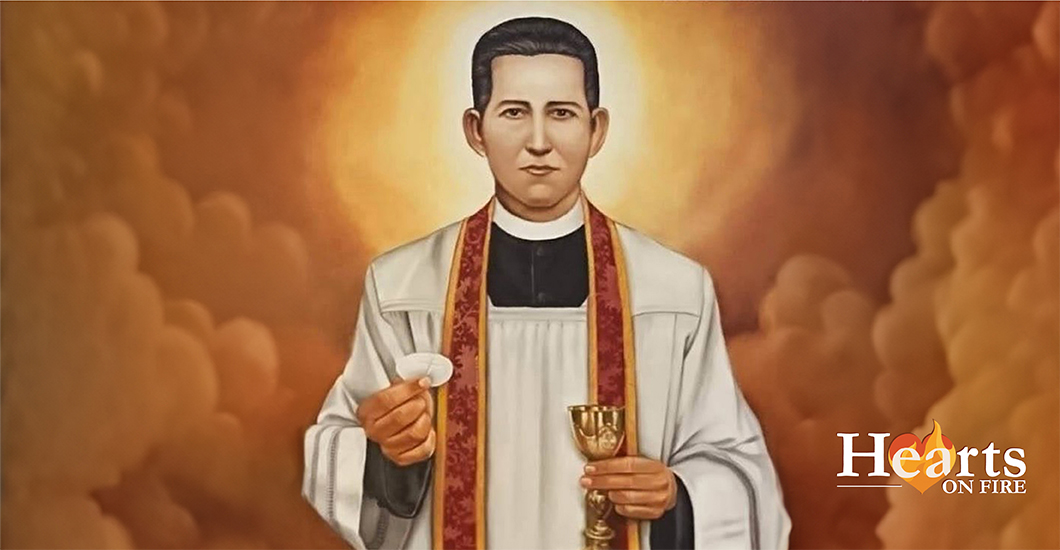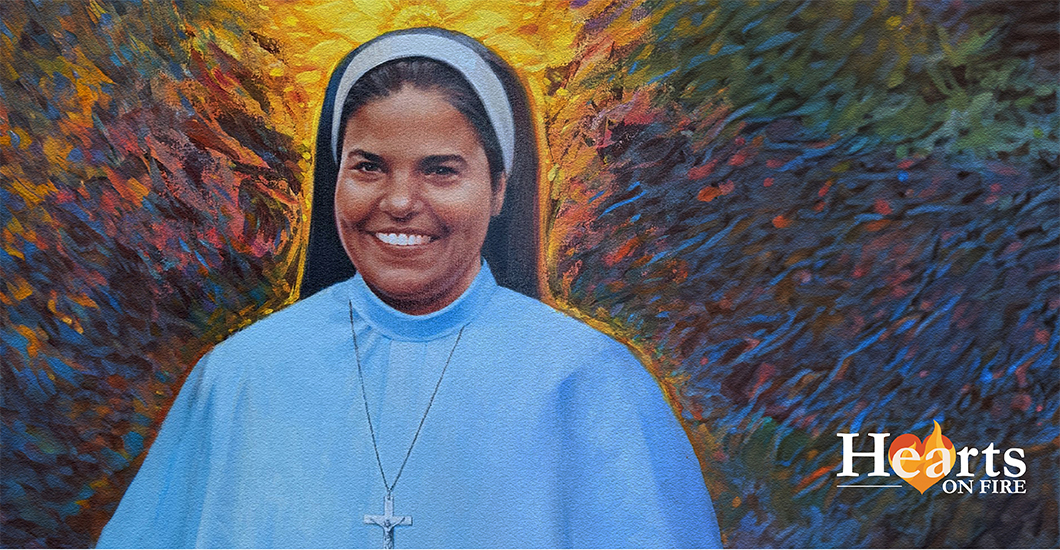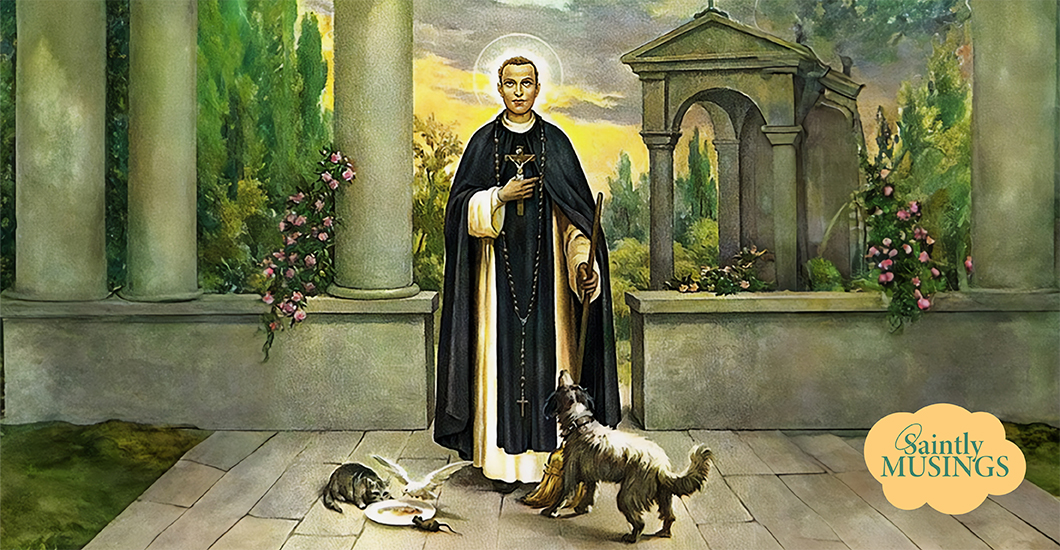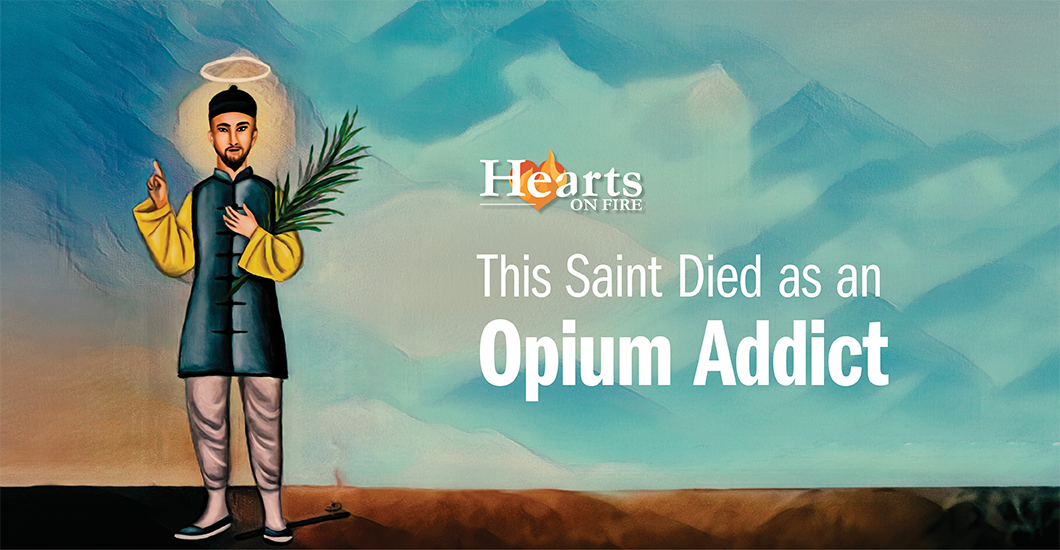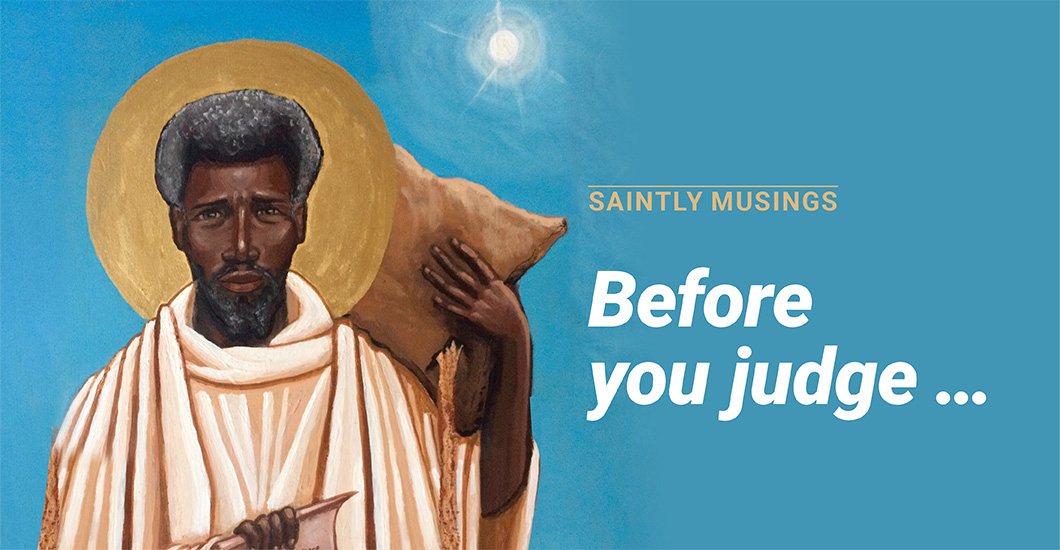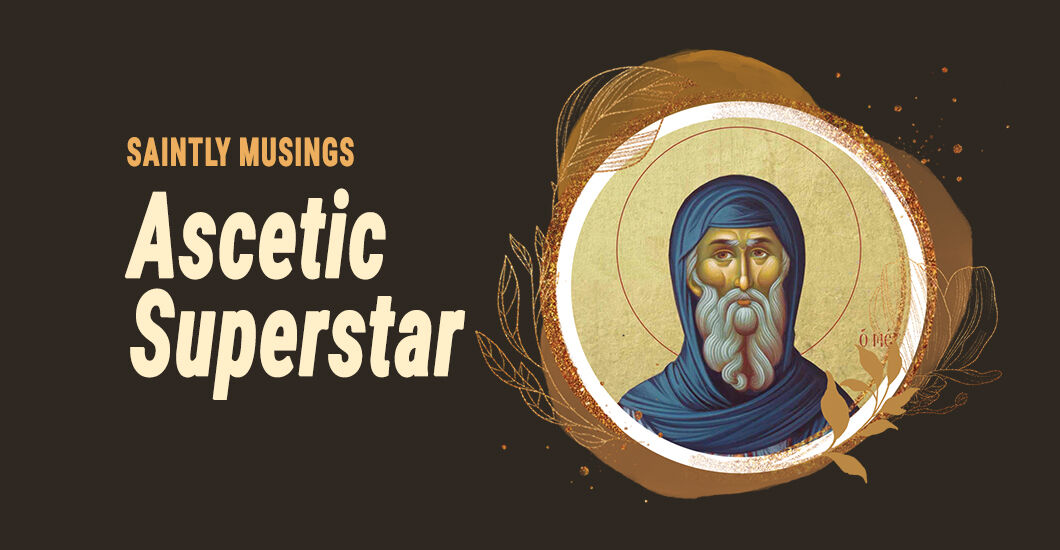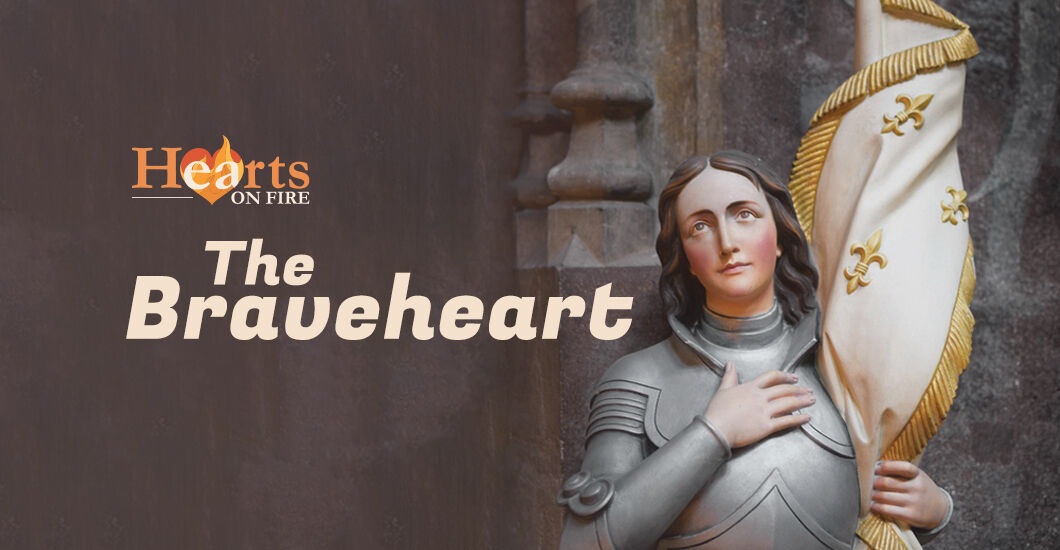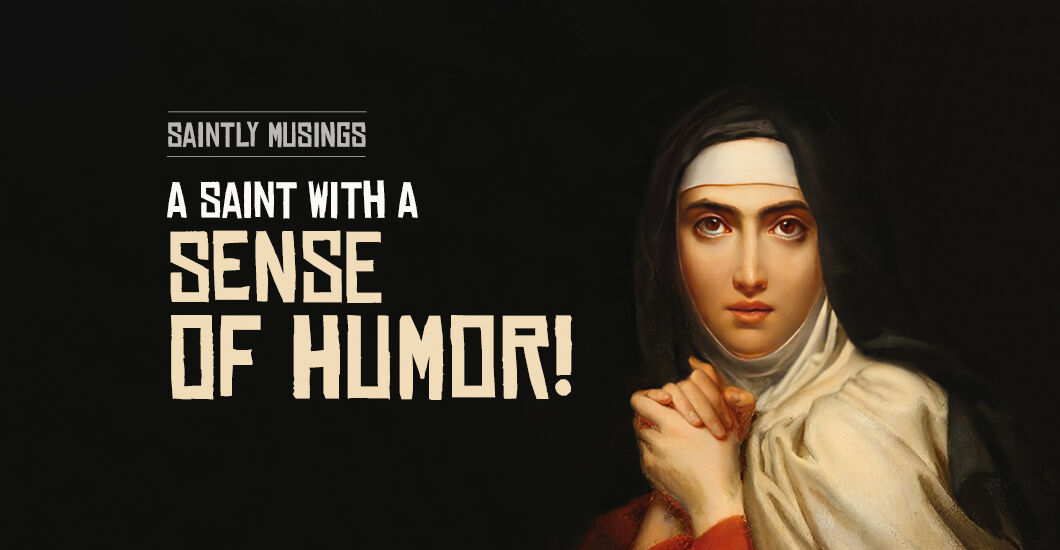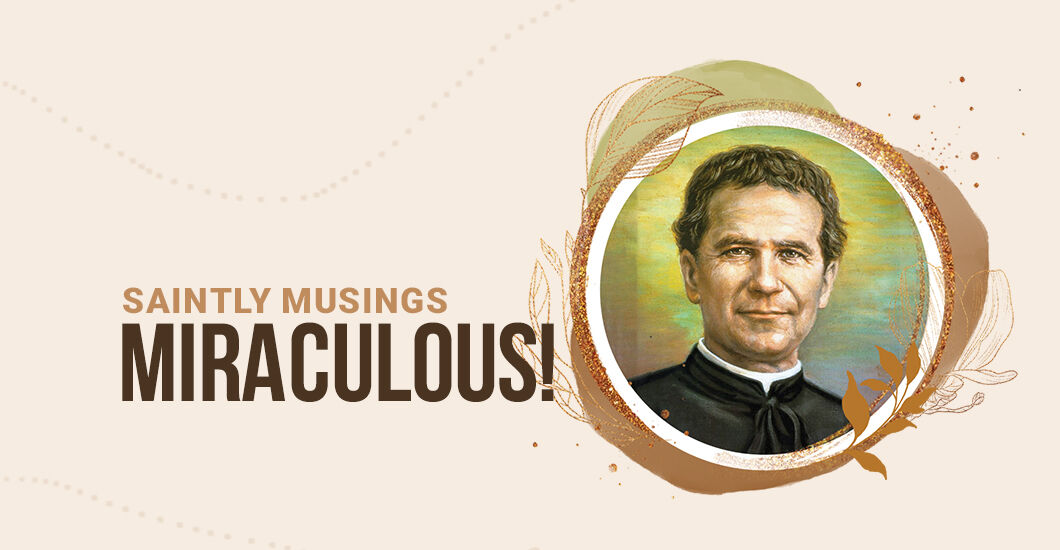Home/Evangelize/Article
Trending Articles
No Longer a Slave
Have you heard of Onesimus about whom Saint Paul wrote the shortest “book” in the Bible?
A Phrygian by birth, Onesimus was a slave to Philemon, an influential member of the Christian community. Philemon had been instructed in the faith and baptized by Saint Paul, who has become his friend and mentor. We lack definite details, but we know that the slave Onesimus had run away from his master—perhaps taking with him some wealth that wasn’t his. At some point after his escape, Onesimus meets Saint Paul in the city where Paul is imprisoned—possibly Rome or Ephesus. Because of Paul’s preaching, young Onesimus embraces Christ and becomes a beloved and indispensable member of Paul’s entourage.
Nonetheless, despite wanting to keep him as his companion in ministry, Paul sends Onesimus back to his master Philemon. But Onesimus does not go unarmed: he carries a brief, but powerful letter Paul has penned. Still a cherished part of the New Testament, The Letter of Saint Paul to Philemon presents Paul’s entreaty that Philemon forgive Onesimus and accept him as “no longer a slave, but more than a slave, a brother and beloved…”
The Letter does not tell us how Philemon responded, but tradition suggests that he did pardon Onesimus, who then returned to his faithful service of Saint Paul in Rome. We know from Paul that later Onesimus carried Paul’s Letter to the Colossians to that community. Tradition also says that, as a zealous preacher of the Gospel, Onesimus eventually succeeded Saint Timothy as Bishop of Ephesus. But his frequent and ardent preaching inflamed with the love of God attracted the attention and the anger of the authorities.
After the martyrdom of Paul, the governor of Rome seized Onesimus and exiled him to one of the islands. There too he went about preaching and baptizing, further infuriating the governor. Onesimus was then arrested and taken in chains to Rome and subjected to cruel tortures for eighteen days. His legs and thighs were broken with bludgeons and finally he was beheaded for refusing to deny his faith in Christ. It is believed that his martyrdom occurred under Emperor Domitian in the year 90.
Shalom Tidings
Related Articles
The Mexican Revolution which began in the early 1920s, led to the persecution of the Catholic community in that country. Pedro de Jesus Maldonado-Lucero was a seminarian at that time. Once he became a priest, despite the risk, he stood with his people. He tended to his flock during a terrible epidemic, founded new apostolic groups, reestablished associations, and ignited Eucharistic piety among his parishioners. Upon discovering his pastoral activities, the government deported him, but he managed to return and continue serving his flock, in hiding. One day, after hearing the confessions of the faithful, a gang of armed men busted his hiding place. Father Maldonado managed to grab a reliquary with Consecrated Hosts as they forced him out. The men forced him to walk barefoot throughout the town, as a crowd of the faithful followed him. The city mayor grabbed Father Maldonado's hair and dragged him toward the city hall. He was knocked to the ground, resulting in a skull fracture that popped out his left eye. He had managed to keep his grip on the pyx until this time, but now it fell out of his hands. One of the thugs took some Holy Hosts, and as he forcefully stuffed the hosts inside the priest’s mouth, he shouted: “Eat this and see if He can save you now.” Little did the soldier know that just the night before, during the Holy Hour, Father Maldonado had prayed that he would happily give his life for an end to the persecution ‘if only he would be allowed to take Communion before his death.’ The thugs left him for dead in a pool of his own blood. Some local women found him still breathing and rushed him to a nearby hospital. Father Pedro Maldonado was born into eternal life the next day, on the 19th anniversary of his priestly ordination. Pope John Paul II canonized this Mexican priest in 2000.
By: Shalom Tidings
MoreRani Maria Vattalil was born on 29 January 1954 to Eleeswa and Paily Vattalil in a small village called Pulluvazhy, in Kerala, India. From a young age, she was brought up in the Christian faith, having love for the poor. She attended daily Mass and led family prayers. During the final year of high school, Rani felt the Lord calling her to consecrated life and entered the Franciscan Clarist Congregation in 1972. It was Rani Maria’s ardent desire to do missionary work in North India and serve the poor, even if it cost her life. She was sent to Madhya Pradesh (a central Indian state) and served several mission areas there. Sister Rani Maria was given the responsibility of coordinating the social apostolate of the local diocese. She organized various educational programs for children and young people and worked relentlessly to empower the indigenous people. She understood how the poor, illiterate farmers were exploited and taken advantage of by their landlords. So, she educated them on their rights, helped them fight for justice, and spoke for those who were unjustly imprisoned. All this infuriated the upperclass landlords, who threatened her with dire consequences if she continued supporting the cause of the poor. But Rani Maria feared nothing and did not back down from her mission to 'love her neighbor.' A devious plan was then hatched by those who hated her. On 25th February 1995, while traveling by bus, she was mercilessly stabbed 54 times by Samundhar Singh—a man hired by the landlords. She breathed her last, repeating the Holy name of Jesus. Rani Maria worked her entire life to fight for the dignity and rights of her fellow men and bore witness to the Gospel through her social activities. Sister Rani Maria’s family, following the valiant example of their daughter, forgave her murderer wholeheartedly, even inviting him to their home! This act of mercy touched him deeply; he repented of his heinous crime and became a changed man. Sister Rani Maria was beatified by Pope Francis on 4th November 2017.
By: Shalom Tidings
MoreMartin de Porres was born in 16th-century Peru; he grew up facing the stigmas of both his mixed race and illegitimacy. After a barber-medical apprenticeship in his young years, he joined the Dominicans as a ‘lay helper’ and continued his barber work in the monastery. One day, Brother Francis Velasco Carabantes approached Martin, desiring to talk to this man whom people were already starting to believe was saintly. Martin was busy with his barber work; he absent-mindedly grabbed this novice and placed him in the barber’s chair. Brother Francis had no inclination to have his head shaved; he disliked the hairstyle that the Dominicans used. Before he could resist, Martin had finished his job, and Brother Francis was angry beyond expression. He started to shout, calling Martin all sorts of curse words. Martin was lost in prayer, and by the time he noticed that this novice was shouting, one of the rectors had seen the commotion and was scolding Brother Francis, who was severely punished and sent away. Martin, once he came to realize what had happened, went to the rector with all possible excuses. He begged forgiveness for this person who had verbally abused him, trying even to explain away the curse words used. Finally, he told the rector: “Everyone knows what a sinner I am.” The rector, who was aware of Martin’s saintly life, gave in to his request and forgave Brother Francis. Not satisfied with this, Brother Martin even sent fresh fruit, which was a rare delicacy in the monastery, to Brother Francis. How many times have we rejoiced in the ‘just’ punishments that our transgressors received? Let us pray to Saint Martin for the virtue of humility, to forgive and show the other cheek, as Jesus taught us to do.
By: Shalom Tidings
MoreOn a scorching afternoon on the streets of Calcutta, I met a boy… Prayer is an undeniable, central, and key part of every Christian’s life. However, Jesus emphasized two more things which clearly went hand in hand with prayer—fasting and almsgiving (Matthew 6:1-21). During the seasons of Lent and Advent, we are specifically called to commit more time and effort to all three ascetic practices. ‘More’ is the important word. Whatever season we are in, radical self-denial and giving are a continuous call for each baptized believer. Around eight years ago, God literally made me stop and think about it. Unexpected Meeting In 2015, I had the great privilege and blessing of fulfilling a lifelong dream to be with and serve some of the most in-need brothers and sisters worldwide in Calcutta, India, where the poor are described not only as poor but the ‘poorest of the poor.’ From the moment I landed, it was as though electricity was running through my veins. I felt such immense gratitude and love in my heart to be given this amazing opportunity to serve God with Saint Mother Teresa’s religious order, the Missionaries of Charity. The days were long but absolutely action-packed and grace-filled. Whilst I was there, I did not intend to waste a moment. After a 5 AM start to each day with an hour of prayer, followed by Holy Mass and breakfast, we set off to serve at a home for the sick, destitute, and dying adults. During the break at lunchtime, after a light meal, many of the religious brothers I was staying with took a siesta to recharge their batteries, to be ready to go again in the afternoon and on into the evening. One day, instead of having a rest in the house, I decided to go for a walk to find a local internet café, to contact my family by email. As I turned one of the corners, I encountered a young boy aged around seven or eight years old. His face expressed a mixture of frustration, anger, sadness, hurt, and tiredness. Life had already seemed to have begun to take its toll on him. He was carrying over his shoulder the biggest transparent, heavy-duty plastic bag that I had seen in my life. It contained plastic bottles and other plastic items, and it was full. My heart broke within me as we stood silently examining one another. My thoughts then went to what I could give this young boy. My heart sank, as I reached for my pocket, realizing that I only had a small amount of change with me to use for the internet. It added up to less than one pound in English money. As I gave it to him, looking him in the eye, his whole being seemed to change. He was so lifted and grateful, as his beautiful smile lit up his beautiful face. We shook hands, and he walked on. As I remained standing in that back street of Calcutta, I stood in awe as I knew that the Almighty God had just personally taught me such a powerful life-changing lesson through this encounter. Reaping Blessings I felt God had beautifully taught me in that moment that it is not the actual gift that is important but the disposition, intention, and love from the heart with which a gift is given. Saint Mother Teresa beautifully summed this up saying, “We cannot all do great things, but we can do small things with great love.” Indeed, Saint Paul said, if we give away all we have “but have not love,” we gain nothing (1 Corinthians 13:3). Jesus describes the beauty of giving, that when we “give… it will be given to you; good measure, pressed down, shaken together, running over, will be put into your lap. For the measure you give will be the measure you get back.” (Luke 6:38). Saint Paul also reminds us that “Whatever a man sows, that he will also reap” (Gal 6:7). We do not give in order to receive, but God in His infinite wisdom and goodness blesses us personally in this life and also in the next when we step out in love (John 4:34-38). As Jesus taught us, “it is more blessed to give than to receive” (Acts 20:35).
By: Sean Booth
MoreThe Chinese Boxer Rebellion in the 1900s killed nearly 32,000 Chinese Christians and 200 Western Missionaries. Among these devoted Christians who gave their life for their faith, Saint Mark Ji Tianxiang stands out because, at the time of his death, he was an opium addict who had not received the Sacraments for 30 long years. Ji was raised in a devout Christian family, and he was a respected and charitable doctor in his community. Fate be blamed, the opium he took to abate a disturbing stomach ailment took hold over him, and he was addicted to it in no time. Though he went to frequent Confession, Ji found himself in the grips of a powerful addiction that refused to succumb to any means of resistance. His parish priest and confessor eventually told him that he could not continue to repeat the same sin in Confession anymore. Confession requires a conscious resolve to repent and sin no more, and this repeated sin, in the 19th century, was not understood as an illness. He was henceforth restricted from receiving the Sacraments, but he continued visiting the Church and stayed true to the Lord’s ways. He remained sincere to his faith because He believed in a Merciful Father. Many assumed that he would be the first to deny the Lord when faced with the threat of persecution. But along with his son, grandchildren, and daughters-in-law, he persevered till the very end. In fact, Ji provided spiritual consolation to his fellow Christians as they were imprisoned and awaiting execution. Stories record that as they were dragged to prison, his grandson, shaking with fear, asked him, “Grandpa, where are we going?” He calmly and jubilantly answered: “We’re going home.” He went to his death, singing the Litany of the Blessed Virgin Mary. Pope John Paul II canonized him in the year 2000.
By: Shalom Tidings
MoreEver heard of a robber who turned into a Saint? Moses the Black was a leader of a band of thieves who attacked, robbed, and murdered travelers in the Egyptian desert. The very mention of his name spread terror in people’s hearts. On one occasion, Moses had to hide in a monastery and was so amazed at the way he was treated by the Monks that he converted and became a monk! But the story doesn’t end there. Once, four of the robbers of his former band descended upon the cell of Moses. He had lost none of his great physical strength, so he tied them all up. Throwing them over his shoulder, he brought them to the monastery, where he asked the Elders what to do with them. The Elders ordered that they be set free. The robbers, learning that they had chanced upon their former ringleader and that he had dealt kindly with them, followed his example: they repented and became monks. Later, when the rest of the band of robbers heard about the repentance of Moses, they also gave up their thievery and became fervent monks. After many years of monastic struggles, Moses was ordained deacon. For another fifteen years, he continued his monastic labors. About 75 disciples gathered around the saintly Elder, who had been granted the gifts of wisdom, foresight, and power over demons by the Lord. Once, a certain brother committed an offense in Scete, the camp of the monks. When a congregation was assembled to decide on this matter, they sent for Abba Moses, but he refused to come. Then they sent the priest of the church to him, imploring, “Come, for all the people are expecting you,” and finally, he responded to their pleas. Taking a basket with a hole in it, he filled it with sand and carried it upon his shoulders. Those who went out to meet him asked, “What does this mean, O Father?” And he replied, “The sands are my sins, which are running down behind me, and I cannot see them. Yet, I have come here today to judge shortcomings that are not mine.” When they heard this, they set that brother free and said nothing further to him.
By: Shalom Tidings
MoreAt the age of 20, Anthony lost his parents and was left with a large inheritance and the responsibility of caring for his sister. About the same time, Anthony happened to hear a reading from the Gospel of Matthew, where Jesus tells a rich young man, "If you want to be perfect, go and sell everything you have and give the money to the poor." Anthony believed he was that rich young man. Shortly after, he gave away most of his property, sold almost everything else, and kept only what he needed to care for himself and his sister. But that’s not exactly what the Lord had commanded! Not long afterward, Anthony was at Mass once again and heard the Gospel passage, “Do not worry about tomorrow; tomorrow will take care of itself” (Matthew 6:34). Again, he knew Jesus was speaking directly to him, so he gave away even the little he had saved, entrusted his sister to the care of some holy women, and entered the desert to live a life of poverty, solitude, prayer, and mortification. In that harsh desert landscape, the devil attacked him in countless ways saying “Think about all the good you could have done with that money you gave away!” Firm in prayer and mortification, Anthony fought off the devil and his manifestations. Many were attracted to his wisdom, and these he encouraged to seek self-denial and the hermetic life. No wonder after his death he became Saint Anthony the Great or Saint Anthony of the Desert, the father of Christian Monasticism. Once a brother renounced the world and gave his goods to the poor, but he kept back a little for his personal expenses. He went to see Abba Antony. When he told him this, the old man said to him, "If you want to be a monk, go into the village, buy some meat, cover your naked body with it and come here like that." The brother did so, and the dogs and birds tore at his flesh. When he came back the old man asked him whether he had followed his advice. He showed him his wounded body, and Saint Antony said, "Those who renounce the world but want to keep something for themselves are torn in this way by the demons who make war on them."
By: Shalom Tidings
MoreFew Saints of the Catholic Church have captured the popular imagination like Joan of Arc. Her story is depicted in paintings, sculptures, and numerous films. Born into a peasant family in 1412, Joan grew up illiterate, but acquired a profound love for the Church and a deep faith in God from her mother. Because she loved prayer and the sacraments, her neighbors said, “She was so good that all the village loved her.” She cared for the sick and homeless, often even giving them her own bed. By the age of thirteen, Joan began to hear the voices of Michael the Archangel, Saint Margaret of Antioch, and Saint Catherine of Alexandria. They told her she was to liberate France and ensure the French heir to the throne was installed as France’s rightful king. She won his trust by telling him details of his past only someone with divine knowledge could know. At the time, France was dominated and ruled by England. Convinced that her “voices” came from God, Joan heroically and faithfully obeyed their instruction, despite obstacles and suffering. Prayer and contemplation remained primary in her life even as she led battles, during which she never raised the sword against an enemy Though two years earlier a commission had “declared her to be of irreproachable life, a good Christian, possessed of the virtues of humility, honesty and simplicity”, Joan was accused of witchcraft and heresy after the English captured her, receiving no support from the very King she put on the throne. At her trial, Joan manifested her deep faith and wisdom, and despite being wrongly condemned, she never lost her faith in God or the Church. When she was burned at the stake, she proclaimed the name of Jesus while holding a crucifix to her heart, causing an observer to say, “We have burned a saint.” Her death increased her fame and popularity. Twenty years later, a new trial declared her innocent of all her alleged crimes. After her reputation grew over the centuries to epic proportions, Joan was beatified in 1910 by Pope Pius X and canonized eleven years later by Pope Benedict XV. She is now the patron Saint of France and one of the Church’s most beloved Saints. Joan’s obedience to God ensured France kept the Catholic faith during the Protestant Reformation while England abandoned it. France remained a solid center of Catholicism from which it would spread to northern Europe.
By: Shalom Tidings
MoreThe river had swelled so high that water covered everything and all sense of where the road or footpath might be was purely a guess. With water everywhere, it seemed foolish to advance, especially in a carriage, for if anyone strayed ever so little off the road, they would perish without a doubt. As her companions panicked, Sister Teresa encouraged them, “As we are engaged in God’s work, how could we die in a better cause?” She then led the way on foot to the convent through the fierce storm. Suddenly she slipped down an embankment and fell squarely into the mud. Instead of complaining or cursing, the irrepressible nun, looked to the sky and quipped, “If this is how you treat your friends, no wonder you don’t have many!” The sixteenth-century Saint and Doctor of the Church, Teresa of Avila, didn’t take herself or this world too seriously and brushed off the little hardships of life with a sense of humor. Her ability to humbly recognize her own faults and need for grace was also tinged with her refreshing humor. In her autobiography, Teresa writes, “Having virtuous and God-fearing parents would have been enough for me to be good if I were not so wicked.” Saint Teresa was also mindful of false piety and once said, “From silly devotions and sour-faced saints, good Lord, deliver us!” A healthy and good sense of humor will keep our head straight and enable us to see the world’s true beauty. Did God say that we need to be “sour-faced” to be holy? So, if you want to become a saint, lighten up, share the joy of the Lord and laugh with your friends like Jesus did.
By: Shalom Tidings
MoreMaria Stardero, a 12-year-old girl, was led by her aunt into the church where dozens of boys were standing about or kneeling in prayer as they waited for Don Bosco to arrive for confessions. As she made her way to a pew, some of the boys noticed that the young girl’s eyes had no corneas and resembled white marbles. When Don Bosco arrived, he asked the girl about her condition. She had not been born blind, she told him, but because of eye disease she had completely lost her sight two years earlier. When he inquired about medical treatment, her aunt began to sob. They had tried everything, but doctors had only one thing to say: “It is incurable!” “Can you tell whether things are big or small?” Don Bosco asked the child. “I can’t see anything.” He led her to a window to see if she could perceive light, but she couldn’t. “Would you like to see?” Don Bosco asked. “Oh, yes! It’s the only thing I want,” said the girl, breaking down in tears. “Will you use your eyes for the good of your soul and not to offend God?” “I promise I will, with all my heart!” “Good,” said Don Bosco. “You will regain your sight.” After recourse to Mary, Help of Christians, Don Bosco recited the Hail Mary and blessed the girl. Then holding a medal of Mary Help of Christians before the girl’s eyes he asked, “For the glory of God and the Blessed Virgin, tell me what I’m holding in my hand.” “She can’t . . .” the elderly aunt began, but Don Bosco paid no heed. After a few seconds, the child shouted, “I see!” Immediately she described the medal in great detail. But when she stretched out her hand to receive it, it rolled into a dark corner. The aunt moved to retrieve it, but Don Bosco motioned her back. “Let her find it to see if the Blessed Virgin has thoroughly restored her sight,” he insisted. Immediately, the girl walked to the dark corner and bent down to retrieve the tiny object. As the many witnesses looked on, awed and profoundly moved, Maria, thanked Don Bosco profusely and with sobs of great joy. Entrust everything to Jesus in the Blessed Sacrament and to Mary, Help of Christians and you will see what miracles are! Saint John Bosco
By: Shalom Tidings
MoreLatest Articles
Letting go is not easy…But what happens if you do it? Ever since the age of one, I have been living in a foster home. George and Hazel, our foster parents, took care of almost ten of us. Our foster dad was an aggressive man, and we were all terrified of him. Every problem was addressed through acts of violence; what was even more terrifying was that he would often specifically pick me as his target. I suffer from acute asthma. One night, as I was in bed, coughing and wheezing, struggling to breathe, he came into my room and sat on top of me! He thrashed me so badly that I couldn’t lean on my back or move. Later that night, when everyone fell asleep, my foster parents secretly inspected my back; through the mirror, I not only saw the reflection of my back but also the shock on their faces. The next day, the other boys took a look and said it was blue-black from top to below. Though the people from foster care would come and check on us occasionally, we were too afraid to report on him. Toughest Decision Once his wife passed, his aggression intensified even more. The beatings got worse. One day, he had me in the corner and I was asked to lift my arms to be punched underneath so that there would be no visible bruises. I can't even remember what it was about. I was a fifteen-year-old boy feeling powerless against this grown, strong construction man. He punched me, again and again and again. Then, he looked directly into my eyes and told me something that changed my life forever. I’ll never be able to forget it because it far surpassed the pain of all the beatings he had given me put together. He said that the man who had me should have been castrated. All of a sudden, something sweet got broken inside of me. I remember him clearly asking me to stay there before he went inside. At that moment, I decided to run and never come back. It was snowing that night and I only had one jacket and a pair of shoes. I just ran. Things became horrible when I went to London to meet with my biological mother. We did not really know each other; we ended up arguing so much that I was thrown out of the house. That night, I wandered around as I had nowhere to go. For a split second, I felt like there were two choices before me—to live or call it a day. It was easier to call it a day; I wasn't worried about death. It all happened within a split second, but I told myself: “Yes, I want to live.” For a few nights, I crashed at my friends' places. While bouncing from one place to another, I got in contact with my foster brother Nigel back in Manchester. Over the months spent together, he had become a father figure to me. I started valeting and cleaning cars in his garage; everything was going pretty well. He watched over me and took care of me until one day, while we were at the gym, he suddenly collapsed and died. I was devastated and I fell into the deepest darkest place in my life. Making Amends I had no faith. I didn’t think about God. But one day, I found a video cassette in my letterbox; it was about the story of Jesus. I watched it several times, and I began to realize that there was a presence around me. As time passed, I realized that my relationship with God was growing deeper. The desire to be a Christian grew stronger in me and finally, I got baptized. I remember coming from the Baptism with the biggest smile that I just couldn't take off. As time flew by, I became an intercessor, praying for people who grew up in similar situations. And wonderful things happened. One day, at 5 in the morning, I was praying in my living room. An image of my foster father appeared to me. I had no contact with him, and I wasn’t really bothered about what was happening to him. But there was this strong urge in me that was directing me to see him. I was really nervous about the meeting; the last time I saw him, I was just a boy, and he was beating me. I finally turned up at the hospital. I had envisioned a big strong man, but there on the hospital bed was this frail old man. For a split second, I felt sorry. I asked my foster sister if I could pray for him. So, she woke him up and told him that I was there to pray for him. He said yes and went back to sleep. I pulled out a forgiveness card and put it at the end of the bed. I had some holy water with me and I started reading the last rites. Something strange happened. I prayed in songs and put water on his head. I had never done this before. In my mind, I was saying: “Jesus, do I need to do anything else?” I heard a voice that said: “The abused prays for the abuser and sets him free.” Then it hit me, it must be coming from the Lord…Who else could that come from? When you say: “You abused me, but I choose to forgive you,” the invisible chord that connects you to the abuser is broken at that very moment. It healed me from all the scars that I carried through my teenage years. A lot of that became non-existent and kind of melted away from the moment I forgave him. God used me to save him. It's a miracle in itself. It was phenomenal for me. Shortly after this, I realized there was someone else I needed to forgive–my biological mother–for abandoning me, letting me be abused, and later on, for throwing me out. It felt like I had dropped a whole weight when I forgave her. After that, I began living a godly life. Forgive and Move On God says: “If you forgive somebody in My name, I forgive them too.” He not only allows us to do it, but He will help us to do it. It's extremely hard to be a true Christian. It is very difficult to follow Christ and be Christ-like. It's a very difficult journey but one that is well worth it because when somebody's done something to you, you have the power to set yourself free through forgiveness. From the moment you forgive the person who hurts you, your new life begins. You can look forward to the joy and the beauty that is to come. So, I urge everyone who is holding something against somebody who's done you wrong, to forgive them. Forgiveness is a decision. Forgive. Let God do the rest.
By: Gary Taffe
MoreA man who walked the earth 800 years ago is still remembered for his simplicity… Picture this: A young man from medieval Italy with a life of parties, fashion, and everything a man could have wanted back then. But suddenly, something changes. A pivotal moment, an ‘aha’ moment that takes his life on a whole new path. Meet Saint Francis of Assisi, the ultimate party animal who became a spiritual superstar! He is known for his flowing brown robe and love for nature. He had a way with animals that could make even Doctor Dolittle envious. Birds gathered around him, rabbits hopped at his feet, and even ferocious wolves turned into cuddly companions in his presence. Talk about a real-life superhero! Heroic Life Saint Francis, a hero with a heart of gold! He wasn't the type of superhero to wear capes and shoot lasers; his true superpower was compassion. Francis had a way of finding joy in helping others, especially those less fortunate. He was like a real-life Avenger (but without the violence), fighting poverty and spreading love wherever he went. Instead of a Batmobile, he rocked a humble robe and sandals, zooming around town to lend a helping hand. Whether it was feeding the hungry, comforting the sick, or even talking to animals (yeah, Snow White vibes!), Saint Francis showed us that being a hero isn't about fame or fortune but about using our powers for good. Picture Francis, the peace guru, strutting down the city streets in his Jordans and a t-shirt that says 'Peace, Love, and Avocado Toast.’ Yeah, he's just like us, not literally (that would have looked like madness 800 years ago), navigating the chaos of modern life with a calm and centered vibe. Saint Francis knew that finding inner peace in our fast-paced world is like navigating a crowded subway during rush hour—challenging but possible. He wasn't a mystical guru on a mountaintop; he was a real human who faced our daily struggles. From deadlines to traffic jams, he understood that peace starts within us, even amidst the hustle of everyday life. Saint Francis always sat in silence and prayer, talking to God while all the animals listened. He had a peace that we can only dream of. We must ask Saint Francis to give us this peace; I promise it’s worth it. We can learn many lessons from the life of Saint Francis, some of which are simplicity and humility. He is a man who lived a life of poverty but was still able to care for people experiencing poverty. This concept of poverty is often misunderstood or even dismissed by many young people today. The youth of this generation are sucked into a world of social media, expectations, and possessions, often spending hundreds of dollars on shoes, clothes, and phones just to ‘look cool.’ Take a look at Saint Francis’s life; he was the son of a wealthy businessman, he had lots of money and worldly pleasures, but he gave everything up to follow Jesus. He took a vow of poverty and dedicated his life to Jesus. He might not be new-gen, but there are so many lessons to learn from his life–his simplicity, humility, peace, and inner transformation. We might think that it’s the Jordans and iPhones that matter, but is it really? Saint Francis reminds us to prioritize what truly matters—genuine connections, selfless service, and inner peace. By embracing his teachings, we can find fulfillment in leading simpler lives, extending kindness to others, and nurturing our own well-being. Saint Francis' example serves as a guiding light, encouraging us to step away from the noise and busyness of modern life and reconnect with the essence of what it means to be human. Let us carry forward his legacy, incorporating his wisdom into our daily lives and making a positive impact on the world around us.
By: Delon Rojes
MoreTom Holland’s magnificent book Dominion develops in detail what amounts to a very simple proposition—namely, that Christianity is responsible for many of the central values that we take for granted and that we assume to be universal. In point of fact, he avers, our insistence upon the dignity of the individual, fundamental human rights, the principle of equality, and perhaps above all that the poor, the marginalized, and the victimized ought to be specially cherished, flows from basic Christian convictions. What prompted Holland to investigate this claim initially was his extensive work in the history of ancient Rome. The longer and more deeply he looked at Roman society, the stranger it seemed, the less like our own time. And the more he studied the great heroes of Rome, the more alien and morally problematic they appeared. To give just one example among many, he urges us to consider perhaps the most impressive of ancient Roman personalities, Julius Caesar. Eager to enhance his political reputation, Caesar embarked on a military campaign in Gaul (present-day France). His remarkable success in subduing this land and making it a Roman province served to cover him in glory and became the subject of his book The Gallic Wars, which is read to this day. But what is rarely remarked upon is the staggering fact that in the course of this conquest, Caesar killed, by conservative estimate, one million people and enslaved another million or so more. Now, Caesar had a boatload of enemies in Rome who suspected him of lusting after kingly power. But what Holland finds fascinating is that none of his opponents were scandalized by his murderous rampage through Gaul. In fact, all of Rome praised him for it. So the question arises: Why would we today consider someone who killed and enslaved on such a massive scale a scoundrel while even the best and brightest in ancient Roman society considered Caesar a hero? The answer, in a word, is Christianity. What the early Christians brought to Roman culture was the belief in the one God who made every human being in His image and likeness and who thereby endowed them with rights, freedom, and dignity. Moreover, the Christians taught, the Creator God became human and went willingly to the very limits of suffering and degradation, in Saint Paul’s words, “accepting even death, death on a cross.” They proclaimed a Savior who was a victim of Roman tyranny and whom God raised from the dead. And by this proclamation, they brought all the tyrannized, all of the victimized, all of the weak and forgotten from the margins to the center. These beliefs were, of course, initially regarded as absurd, and the early Christians were brutally persecuted for them. But over time, and through the witness and practice of courageous people, these beliefs soaked into the fabric of Western society. So deeply did they penetrate our consciousness that we came, as Holland has argued, to take them for granted and to mistake them for general humanistic values. Now, why is all this important to us today? We live in a time when the Christian faith is rather regularly denigrated by those in the upper echelons of elite society, in the universities, and in the media. Moreover, armies of people, especially the young, are disaffiliating from the churches and ceasing to engage in religious ritual and practice. Harmless enough, you might think, or even to the advantage of a society reaching maturity through secularization? Think again. As Christian faith and praxis evanesce, the values that Christianity has inculcated in our culture evanesce as well. Cut flowers may bloom for a time once they’ve been ripped from the soil and placed in water, but they will fade soon enough. We delude ourselves if we think that the values instilled in us by Christianity will long survive the demise of Christianity itself. Signs of the emergence of a neo-paganism in fact abound. In many states in our country, as well as in Canada and many European countries, a regime of euthanasia holds sway. When elderly or sick people become inconvenient, they can and should be eliminated. And, of course, in most countries in the West, when a child in the womb is judged to be a problem, he or she can be aborted at any point in pregnancy, up to the moment of birth. In my home state of Minnesota, a proposal has been made to enshrine this ‘right’ to the murder of the unborn in the constitution. How like this is, by the way, to the ancient Roman practice of exposing unwanted newborns to the elements and the animals. And how fascinating, in light of Tom Holland’s analysis, that the early Christians got the attention of the environing Roman culture precisely by their willingness to rescue and take in these abandoned babies. So, what is the needful thing? Christians must raise their voices in protest against the culture of death. And they must do so by claiming and publicly proclaiming the values that come from their faith. For too long, believers have been cowed into silence by the insinuation that religion is a ‘private’ matter. Nonsense. Christian values have informed our society from the beginning and have provided the coherent moral framework that most of us still take for granted. Now is not the time for quietude. It is time for us to shout our convictions from the rooftops.
By: Bishop Robert Barron
MoreQ – Later this year, my brother is getting civilly married to another man. I am very close with my brother, but I know that marriage is between a man and a woman. Would I be allowed to attend his wedding? A—This question is becoming increasingly pressing, as so many of our family and friends live lifestyles that contradict God's revealed plan for our fulfillment. Such a quandary can cause great angst since we want to love our family and support them, even if we disagree with their choices. At the same time, we cannot betray what we know to be true, as we believe that God’s plan leads to authentic happiness. The Catechism of the Catholic Church (Paragraph 1868) deals with this when it speaks about ways in which we can cooperate in someone else’s sinful choice. We participate in someone else’s sin when we ‘praise or approve’ of the sinful action. In the case of someone making a lifestyle choice that goes against our Catholic Faith, it would be morally wrong for us to in any way congratulate or celebrate this choice, which ultimately harms their relationship with God and puts their salvation in jeopardy. So what would be the best course of action? I would recommend an honest conversation with your brother. Share your deep love for him, and how you desire this relationship to continue being close. At the same time, share with him how your faith and conscience teach you that you cannot approve of things that you know to be wrong. Do not attend the wedding, send a gift, or congratulate him, but be sure to let him know that you are still there for him. Emphasize that it is not out of ‘hate’ or ‘bigotry’ that you cannot attend the wedding, but out of a firm and unchanging belief that God created marriage as something sacred between a man and a woman. This may or may not cause strife and conflict in your family. But we must never forget that Jesus promised: “Not to bring peace, but the sword”. He said that we must follow Him above any other relationship, including that of family and friends. This is certainly one of His difficult teachings, but we remember that truth and love are never in opposition, and to truly love your brother, you must love him according to the truth that Christ reveals. Never forget, too, the power of prayer and fasting. Pray and fast before your conversation with your brother so that his heart may be open to your goodwill, and pray and fast after the conversation so that he may experience a deep conversion to Christ, Who alone fulfills the human heart. Do not be afraid to choose Christ over your family, and continue to love your family— in and through Christ— regardless of your brother’s reaction. Do not be afraid, but continue to love in truth.
By: Father Joseph Gill
More